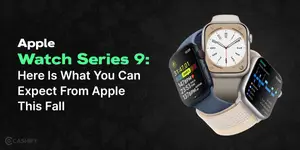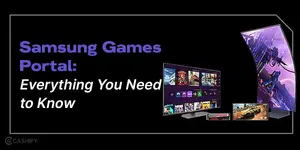In recent years, there have been quite a lot of substantial advancements in the field of artificial intelligence. This in particular in the context of natural language processing, has led to a rise in advanced language AI models that are capable of generating text, images and more that can easily be confused for human-generated content.
Some of the popular AI platforms include ChatGPT, Bard, and Copilot, each gaining recognition for their distinct capabilities and applications. In the last year, we have seen the rise of all these new AI platforms but, have you wondered which generative AI platform is the best?
Here in this article, we will seek to compare these three AI platforms to determine which one stands out from the rest. Do note that we might not be able to find a winner, but it doesn’t hurt to give it a try!
Also read: We Tried The Best Free ChatGPT Alternatives – Mind Was Blown!
What is Generative AI?
Generative AI, abbreviated from Generative Artificial Intelligence, denotes a category of artificial intelligence systems that are created to produce new and original content. This new content can be images, text, audio or synthetic data. Diverging from conventional AI systems reliant on rule-based algorithms or predetermined rules, generative AI possesses the capacity to independently generate content, often emulating the traits and structures identified in the training data.
A notable example of generative AI is found in transformer-based models by OpenAI’s GPT (Generative Pre-trained Transformer) series, encompassing models like GPT-3 and ChatGPT. These models employ sophisticated deep-learning techniques to generate text resembling human language, drawing from patterns and context acquired during their training.
Generative AI extends its application to diverse domains, including but not limited to natural language processing, image synthesis, music composition, and beyond.
ChatGPT vs Bard vs Copilot: Which is Better?
ChatGPT
Developed by OpenAI, ChatGPT is a sibling model to InstructGPT and belongs to the GPT (Generative Pre-trained Transformer), utilizing the transformer architecture. Released as a companion to the widely acclaimed GPT-3, ChatGPT is specifically fine-tuned for conversational purposes.
It excels in producing contextually relevant responses in a chat-based format, making it a versatile tool for applications such as chatbots, virtual assistants, and more. ChatGPT demonstrates an exceptional ability to maintain context and engage in multi-turn conversations, making it suitable for applications requiring sustained interactions.
ChatGPT features a user-friendly interface making it accessible to a diverse range of users, including those without any understanding of AI or programming. Additionally, users have the flexibility to fine-tune the ChatGPT experience for specific tasks, tailoring its responses to meet particular requirements.
There are certain drawbacks to ChatGPT as well, with the AI at times giving responses lacking precision or specificity, potentially leading to ambiguity. Also, real-time engagement may pose challenges for ChatGPT due to latency. Also, the features in the free tier are quite limited and new features that are being launched are only included with the ChatGPT Plus subscription.
Also read: What Is ChatGPT: A Revolution or Revelation?
Bard AI
Bard is an experimental conversational AI chat service developed by Google. Its purpose is to operate like ChatGPT, with the primary distinction being that Google’s service retrieves information directly from the internet, using the Google search engine.
Bard stands out since it is known for producing more precise responses compared to some other models, addressing the issue of ambiguous or non-specific information. It also has the potential for multimodal applications, which means that it can allow people to process and generate text based on both textual and visual inputs, instead of some models which only allow image-based AI generations. Plus Google has an advantage with its existing Google Search engine what is the house for every information that we find on the Internet.
Furthermore, Bard benefits from an open-source, community-driven development approach, fostering collaboration and continuous improvement. Despite this, there are certain drawbacks too, with Bard having a steeper learning curve for users not familiar with the intricacies of model fine-tuning and customization. Also, Bard is not as widely available or integrated into various platforms compared to more established models like ChatGPT.
Also Read: ChatGPT Vs Google Bard: Which One Is Superior?
Copilot
Bing Copilot is the third AI-driven chatbot companion in our list, coming from none other than Microsoft itself. This tool allows the user to enjoy an AI platform that enhances the Windows 11 user experience by integrating artificial intelligence. This built-in feature is designed to assist users in finding answers and accomplishing tasks seamlessly. In addition to bing.com/chat and Copilot in Edge, Copilot in Windows serves as an extra portal for Bing Chat Enterprise.
This comes as Microsoft is consolidating its AI companion offerings under the Copilot brand, where Microsoft Copilot functions as the free AI chatbot companion accessible to everyone. However, specific Copilot features such as Copilot for Microsoft 365, Security Copilot, Copilot for Service, and Copilot for Sales require a paid subscription for their services.
ChatGPT vs Bard vs Copilot: Conclusion
Comparing the three AI platforms ChatGPT vs Bard vs Copilot we can’t have a clear winner. ChatGPT is based on GPT (Generative Pre-trained Transformer) architecture making the conversations feel more natural and engaging. Google Bard uses similar GPT architecture with the added touch of Sparse Transformer Technique. While on the other hand, Copilot uses LLM (Large Language Model) along with deep learning techniques.
Overall, ChatGPT, Bard, and Copilot each bring their unique strengths and weaknesses. The selection of the best AI platform ultimately hinges on the specific needs and use cases of the user. For conversational applications, ChatGPT’s depth and user-friendly interface make it a formidable choice. And if you are into generating unique content including text and images then ChatGPT is the one for you. On the other hand, Bard, with its enhanced specificity and its ability to fetch real-time information from the internet is something that works a Google Search on steroids.
Did you know that refurbished mobile phones cost at least 10% less than new phones on Cashify? You also get other discounts, No-cost EMI and more, making it the most affordable way to buy a premium phone. So, what are you waiting for? Buy refurbished mobile phones at your nearest cashify store and avail exclusive offers.
















